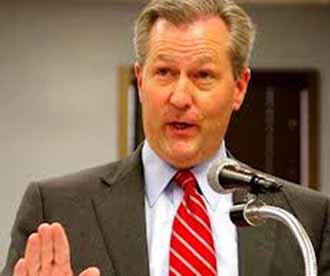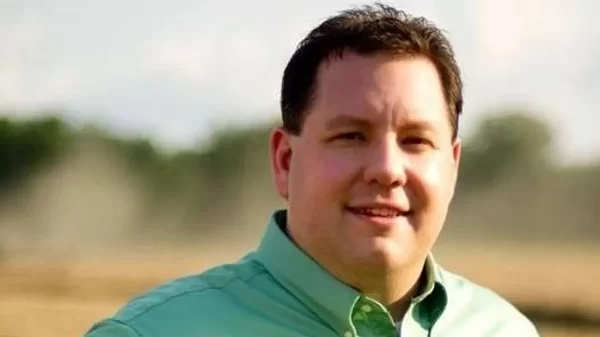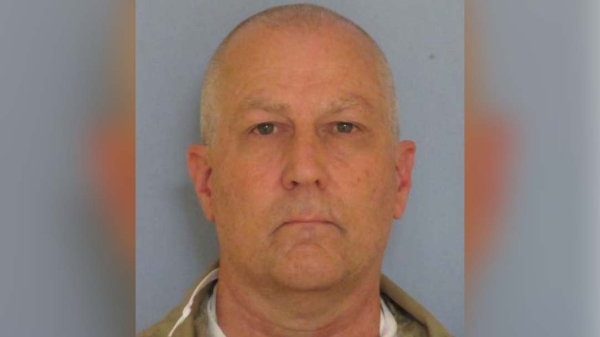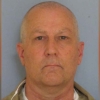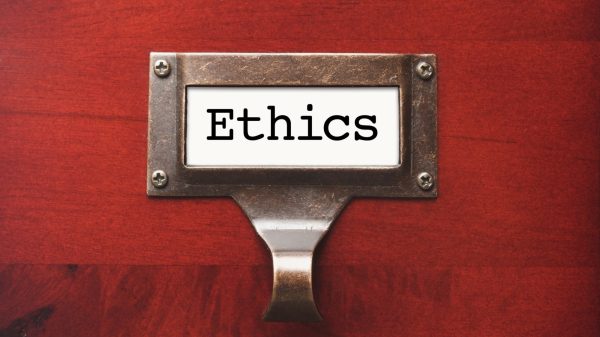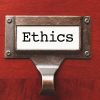By Bill Britt
Alabama Political Reporter
MONTGOMERY—Even before the first witness was called in the Grand Jury investigation of Speaker Mike Hubbard, his attorney, J. Mark White, was complaining to the prosecution that leaks were coming from the Grand Jury.
White’s letters containing complaints and accusations about perceived violations of the Alabama Grand Jury Secrecy Act officially became public record in the State’s Surreply answer to Hubbard’s Amended Motion for Production filed on January, 5, 2015.
It now seems clear that White’s early and continual claims of leaks and potential violation of the Alabama Grand Jury Secrecy Act has arrived at its intended destination, with the publication of an “off the record” conversation between radio talking head, Dale Jackson and prosecutor Matt Hart.
But the strategy has its roots in White’s beginning media campaign and his first communication with Acting Attorney General in the Hubbard investigation W. Van Davis.
In a letter to Davis, dated September 13, 2013, White stated that his team of investigators were, “attempting to ascertain the basis for representations by certain people that they have ‘sources with intimate knowledge of the investigation’” and that those, “‘sources’ are affording them special and privileged access to information protected under the Alabama Grand Jury Secrecy Act.”
This letter is listed as Exhibit A in the State’s Surreply Motion.
Here White concluded that because someone characterizes “sources” as someone “with intimate knowledge of the investigation” that this is a violation Alabama Grand Jury Secrecy Act, even though the Grand Jury has not yet heard from a single witness.
White was telling the media he was concerned about violations of the Secrecy Act, even before he had communicated with Davis. He also denied, at the time, that he was actually representing Hubbard in the Lee County investigation, even though Exhibit A proves that was always the case.
On September 11, 2013, the Montgomery Advertiser reported that White was concerned about news reports citing sources involved in a grand jury, “…that obviously piques my interest because of the Alabama Grand Jury Secrecy Act,” he told the Advertiser. He also said that if he found violations of the “Grand Jury Secrecy Act,” his team would report it to appropriate law enforcement.
Upon accepting Hubbard as a client, White told the press that he was investigating individuals making false, misleading or libelous statements about Hubbard, his business, and his family. He did not disclose that he had already been informed that Hubbard was the subject of a criminal investigation, and that his real purpose was to manage Hubbard’s defense. It appears that from the beginning, White set up a misleading narrative about why he was representing Hubbard and it appears that accusations of “leaks” and “violations” were also a part of a defense strategy built around subterfuge.
On October 16, 2013, Davis’ response to White’s letter stated, “In response to concerns you raised about violations of The Alabama Grand Jury Secrecy Act, Section 12-16-214, et seq, Ala. Code (1975), I request that, if you know of or become aware of any such violations, that you please report them to my office immediately.”
In the correspondence, Davis informed White, “I understand that you informed the District Attorney for the Thirty-Seventh Judicial Circuit [Lee County] that you are aware of two grand jury ‘leaks’ involving this matter and know the identity of the alleged ‘leakers.’ Please report those violations to my office as soon as possible so that we may take action, if necessary, to enforce the law and to protect the integrity of the grand jury process.”
So, just a little over a month after his first introducing the subject of leaks, White told the Lee County DA that he has specific knowledge of two leaks and even the identity of the leakers; however, he did not inform Davis. This information is contained in Exhibit B of the State’s response.
Again on January 23, 2014, White complained about what he suspects are “third parties utilizing your investigation for their own personal and political purposes.” In this correspondence, White informed Davis, “we will not be able to ignore those who seek to misuse your investigation for their own political and personal gain. We urge you to confront those individuals who have been identified to you that are making public statements, allegedly based on ‘inside information,’ about what has and what will occur in your grand jury proceedings.” This letter is marked Exhibit C.
On March 5, 2014, Davis enumerated White’s allegations of possible violations of the Alabama Grand Jury Secrecy Act stating that the State had, “utilized significant attorney and agent time to fully investigate the allegation you reported concerning possible violations of the Alabama Grand Jury Secrecy Act.” He also said that the Grand Jury activity had been paused, “in order to determine, with certainty, if there was a problem with secrecy.” Davis concluded by saying that after thoroughly investigating the matter there was “no credible evidence of any violation.”
In the correspondence, Davis addressed White’s concerns over “alleged damage incurred by your client resulting from third party commentary about the ongoing investigation.” Davis says the “State has no control over third parties who trade in speculation and rumor about criminal investigations,” but if it were determined that such a violation had occurred the State would “pursue it with vigor and to conclusion.”
Davis reminded White of the many instances in which he has threatened civil action against those who had spoken against Hubbard, and that civil court “appears to be the appropriate one for such matters that you deem to be meritorious.”
He further stated, “Also, at the risk of sounding presumptuous about advice you may want to give your client, his own communications with others may be generating unnecessary discussion about the investigation. The State has determined that your client has made numerous statements to individuals regarding the alleged political motives of the investigation, the alleged lack of professionalism on the part of those conducting the investigation, the nature of the alleged wrongdoing being investigated, etc. These statements by your client have, to the State’s knowledge, generated rumor, press interest, and discussion of the matter.” Davis continued to answer White’s concerns, though he did say that his replies are a “courtesy.” This material is detailed in Exhibit D.
In a letter dated March 24, 2014, White complained to the State about “attack ads” directed at Speaker Hubbard. White said they have “escalated both in number and vehemence.” He then took occasion to mention this reporter saying, “In particular, the attacks on Speaker Hubbard by Bill Britt on both his blog and television show make it obvious that concerted efforts are being made to influence the individual grand jurors as well as the entire grand jury process.”
(On a personal and professional note, my job is to investigate and report on politics and politicians. For over two years the Alabama Political Reporter and more recently the Voice of Alabama Politics, have rigorously investigated Speaker Hubbard. Our mission is simple: Inform, educate and alert the public to the activities of State government and politicos. White’s assertion that our reporting is somehow an effort to “influence the individual grand jurors as well as the entire grand jury process” is wrong and misleading.)
In his letter, White would have Davis believe that, “The attack ads, the media reports, and the ‘push poll’” are a part of a “concerted efforts of John Rice, Mr. Britt, Baron Coleman, and Joe Hubbard to defeat and ruin Speaker Hubbard any way they can.” As evidence, he referenced an article in Alabama Political Reporter which he identifies as “ March [sic] Dark Money Group Behind Teacher Attack Ads, Alabama Political Reporter, Mar. 24, 2014 (located at this link).” White once again threatened to “not hesitate to seek judicial relief should such be appropriate or necessary.”
All of these accusations by Hubbard’s attorney seem to culminate in the filing to have the case dismissed based on allegations of “prosecutorial misconduct.” White would have the public and trial judge believe the Jackson tapes point to a violation of the Grand Jury Secrecy Act.
In the State’s Surreply motion they concluded that, “No confidential grand jury information was disclosed. Moreover, because the conversation occurred after Hubbard was indicted, the conversation could not have possibly influenced the grand jury proceedings which resulted in the indictment. In light of these facts, Hubbard’s Amended Motion is due to be denied.”
These and other issues should come before Circuit Judge Jacob Walker III, at the end of January.








































